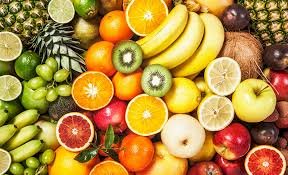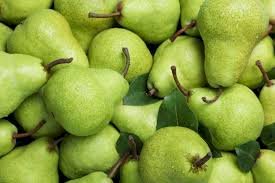Kinds of fruits you should not eat on an empty stomach

Not all fruits are ideal to eat first thing in the morning on an empty stomach.
Eating foods such as fruits that are lower in calories instead of higher-calorie food may be useful in helping to lower calorie intake. Fruits provide nutrients vital for health and maintenance of your body, such as fiber, vitamin C, potassium, and folate.
Fruits are a great choice for a healthy diet, but eating certain fruits at certain times can actually upset your stomach or cause discomfort when eaten without any other food.
We need to be mindful of how our bodies react to different fruits at different times of the day. Here’s a look at five fruits you should avoid eating on an empty stomach:
1. Citrus fruits
Oranges, lemons, and grapefruits are rich in vitamin C and have numerous health benefits. However, eating them on an empty stomach can be harsh for some people, especially if you have a sensitive stomach. The high acidity in these fruits can irritate the lining of the stomach and cause heartburn or even gastritis. It’s better to have citrus fruits after a meal or with other foods to balance out their acidic nature.
2. Bananas
Bananas are convenient and filling, but bananas are high in natural sugars. When eaten on an empty stomach, the sudden spike in magnesium levels can upset the balance in your blood, which might affect your heart health over time. The high sugar content can also lead to a rapid rise in blood sugar levels, which can leave you feeling tired or sluggish later. It’s best to eat bananas with other foods, such as in a smoothie or with some nuts.
3. Tomatoes

Tomatoes are technically fruits and are commonly used in stews, salads, sandwiches, and sauces. However, tomatoes are another acidic fruit that should not be eaten on an empty stomach. The acid in tomatoes can react with the digestive juices in your stomach, potentially causing a stomach upset or even contributing to the formation of gastric ulcers. If you love tomatoes, try pairing them with other foods, like whole-grain bread or cheese, to reduce the risk of irritation.
4. Pineapple
Pineapple is a tropical fruit that’s refreshing and loaded with nutrients. But it contains a strong enzyme called bromelain, which can irritate the lining of your stomach when eaten alone on an empty stomach. This can cause nausea, indigestion, or discomfort, especially for those with sensitive stomachs. It’s better to enjoy pineapple as a part of a balanced meal or eaten as a snack later in the day.
5. Pears

Pears are delicious and full of fibre, which is good for digestion. However, the tough fibres in pears can be a bit too much for your stomach to handle when it’s empty. Eating pears on an empty stomach might cause bloating or discomfort. To avoid this, it’s better to eat pears after a meal or combine them with other foods to help your stomach process them more smoothly.






















